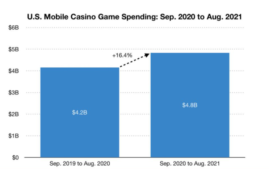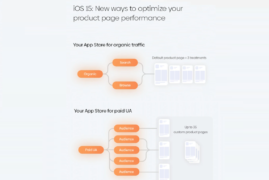We already know that artificial intelligence is set to shake up many different industries, with app marketing being one of the areas showing the most potential. Giving your user a personal experience is key to app user retention and engagement, and thanks to AI it is becoming easier and easier to create those truly personalised experiences.
Customers expect personalisation throughout each stage of their journey, whether they have just downloaded your app for the first time, if they are a loyal user or even a lapsed user who hasn’t used your app for some time. How you communicate with these individuals should depend on their stage of the user journey. You aren’t going to ask someone who has just downloaded your app to leave an app store review are you?
Table of Contents
- Improve Your App Personalisation with Artificial Intelligence
- google play aso
- mobile app marketing insights
- buy keyword installs
Improve Your App Personalisation with Artificial Intelligence
The users of today want to see that you value their time and do all you can to show them that your brand cares about giving them the best user experience possible.
You might think your current methods of personalisation are working just fine. But this isn’t going to cut it in the long run. The expectations users have for your app are becoming higher and higher. They want solutions that are relevant, targeted and undeniably personalised to their individual needs.
Marketing automation platforms are great, but with artificial intelligence they have the potential to revolutionise your entire mobile marketing strategy. So let’s talk about some of the ways an AI-powered marketing platform can take your app personalisation to a whole new level…
Real-Time User Personas
AI can analyse behavioural and demographic data much more quickly and in more detail than us humans, allowing it to figure out exactly the sort of content each individual user enjoys.
Yep, you read that correctly… Each. Individual. User.
You can finally kiss goodbye to manually segmenting your users into extremely broad, unchanging personas. Whether you have 100 users or 100,000 users, artificial intelligence has the ability to learn about each one of their preferences on an ongoing basis, updating which persona they fit into best as and when needed.
Relevant Content
Failing to keep your app users engaged is one of the main reasons why most of them churn within just 90 days. You might be providing them with fresh content on a daily basis, but if this is always generic and un-targeted content, you may as well not bother. Personalisation is the key to driving app engagement. Don’t forget you are fighting for their attention over the many other notifications and emails your user is bombarded with each day. The generic stuff is not gonna stand out from the crowd.
Artificial intelligence has the ability to digest huge amounts of high quality data about each individual user through their in app behaviour and make recommendations about the types of content they are most likely to engage with. For example, 75% of what Netflix users watch comes from product recommendations based on such algorithms.
If your app is a retail app or has in-app purchases then AI can also learn from a user’s buying habits and preferences to provide personalised shopping recommendations. E-commerce giant Amazon generates more than 35% of its total revenues using this method.
A personalised message that appears to have been created with their best interests at heart is much more likely to resonate with them, compared to one they know is going out to your entire database. You wanna make them feel like number one, not your bit on the side.

mobile app marketing insights
Learn Behaviour Patterns
With the ability to learn, AI allows for a much more seamless user experience. By learning from its past mistakes it can figure out the best ways to achieve a particular goal over time. For example, user ratings are core to your app’s success but gaining them can be trickier than you think. Based on previous interactions, AI can learn the best time in the customer journey to ask for a user rating and suggest the messaging that might be most effective as well. Another good example is if you use an app for your banking. The chances are your bank uses AI in the form of pattern-detecting algorithms so that if something irregular occurs it flags up as potential fraudulent behaviour.
Optimal Timing
There is nothing that turns your user off quicker than sending too many push notifications or emails at the wrong time. Now I appreciate a notification from ASOS telling me they have 20% off everything for the next 24 hours… but this would not go down as well at 4am in the morning. That being said, this could be break-time for someone who works a night-shift and could work extremely well. This is where artificial intelligence can step in. By analysing the user’s behaviour and previous interactions with push or email messaging AI can choose the optimal time to hit the user with a particular notification that’s more likely to result in them taking action.
As well as this AI can pick up on unexpected behaviour such as increased activity during a day or time that the user may not normally be active. This might be due to poor weather conditions that prevented said user from going to work and so they are stuck at home, bored. An AI powered marketing platform sees this as an opportunity and automatically responds by sending the user relevant messaging in a bid to increase app user engagement and encourage in-app purchases.
Conclusion
Personalisation is just one of the many possibilities for apps to leverage the power AI to improve their overall mobile marketing strategy. Of course the system has some limitations and will only be as good as the data it can collect, but ultimately artificial intelligence is taking the guesswork out of marketing, and giving the marketer confidence that they are delivering the right message, to the right user, at the right time and via the right channel.

